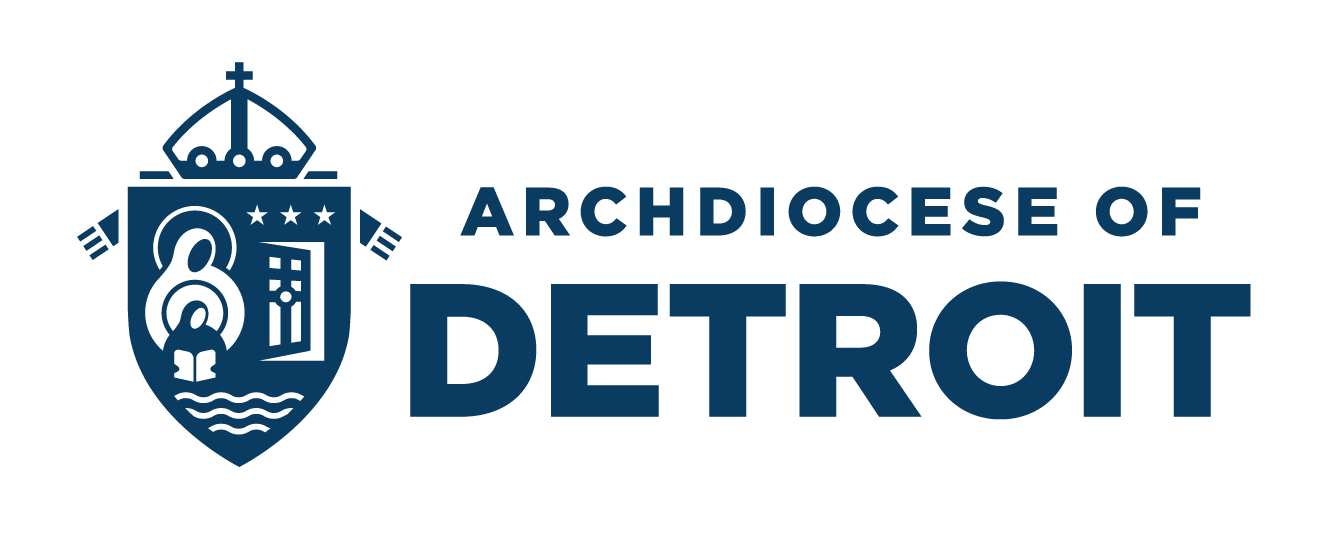Archbishop Vigneron Ash Wednesday Homily
What we are about to do, of course, is a venerable tradition: Beginning Lent with the celebration of the Holy Eucharist and allowing ourselves to have ashes imposed on our head. A tradition that is rooted in the very words of our Lord and Savior. A tradition then, that obviously at least goes back 20 centuries. But even more, because we heard from the prophet Joel, that our celebration of this time of repentance as members of God۪s people in the New Testament, the New Covenant, is a continuation of the heritage that we have from the Synagogue, from Israel.
And yet, St. Paul says, that it isn۪t an old thing we do, it۪s about now. The here and now. Paul ends that as the kind of punchline for the second reading. Now is the very acceptable time. Now is the day of salvation.
We are living in this present moment to begin a period of repentance. And so, I think, for a few minutes, I۪d like to simply talk about the basics. Because when one begins again, that۪s a good place to start.
What۪s the sort of simple skeleton about Lent, the very fundamental structure? First of all, Lent is about answering. It isn۪t something that we think up. It isn۪t a project that we invent. But, entering into this period of repentance is about answering God۪s call. He takes the initiative. We۪re here because we۪ve heard him. Perhaps we۪ve heard somebody on the radio, or we saw it in the paper. Perhaps it۪s simply about what we۪ve heard in the recesses of our hearts. But we۪re here as an answer. That۪s very important. An answer to the summons that we heard in the Gospel that was read in the Churches on Sunday: Seek first the Kingdom of God. That۪s the call we۪ve heard. Jesus inviting us to put His Kingdom and Him above all else. And we respond. And so, a very simple part of our Lenten experience is to ask myself everyday: Do I put Christ first? It۪s that simple, our Lent.
And once we know where we don۪t put Him first, and we all are guilty of someway or other not putting Him first -- asking Him to be second, to repent. What do I need to leave behind in order to grow closer to Christ? How shall I let Him draw me more deeply into love? How shall I have Him and cooperate with Him in placing His Kingdom first? And so we remember that Lent isn۪t really a program. It۪s about a person. The person of Jesus Christ, Our Lord, Our Master. The one for whom we say we would give up our lives if He asked for that. Speaking to my heart, asking me to love Him again. It۪s about doing it together. That۪s very important for Lent. Solitary tasks are the most difficult to accomplish. God made us all to be teams, to work together. To be as Pope Francis describes us, this band of missionary disciples.
It۪s finally about joyful freedom. What am I free to let go? What have I been hanging onto that gets in the way of my friendship with Christ? Perhaps it۪s a habit of some sort. Perhaps it۪s indulging in a kind of fatalism, where I don۪t believe I can be any better, I۪ve given up on the idea that I could be a saint. Oh, that۪s all right for Mary Magdalene and Padre Pio and Fr. Solanus, but not for me. No! Lent we can be free. Free of what shackles us to the past and move forward, and we can do it with great joy. Joy because Christ loves us. Joy because Christ is with us. Joy because Christ makes us free.
I۪m so very pleased to have one more Lent with all of you. To be at this together, to start over afresh, to have a new now, if you will. And that together we go off into this desert of 40 days to fall back in love with Christ.
I wish you a very great blessing from God every day -- that you hear Him. It۪s this simple listen for what He says every day, which is a now, and answer generously. And we۪ll come to Easter filled with joy.
n/a

